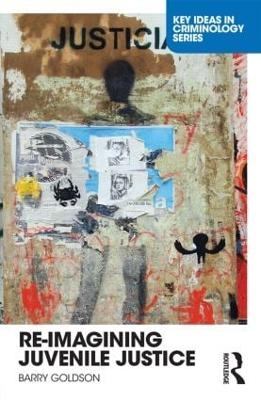
Re-Imagining Juvenile Justice
Routledge (Verlag)
978-0-415-70369-7 (ISBN)
Re-imagining Juvenile Justice explores major concepts, issues, debates and controversies in the field of juvenile justice both nationally and internationally. It seeks to fundamentally reconceptualise or, as the title implies, ‘re-imagine’ juvenile justice.
The book historicises contemporary juvenile justice before engaging a dispassionate and objective analysis of juvenile ‘crime’ in the modern age. Social harm and public health perspectives are applied both to contextualise juvenile ‘crime’ and to re-examine the legitimacy and efficacy of many conventional juvenile justice interventions with reference to ‘rehabilitation’, ‘harm reduction’, ‘crime prevention’ and ‘community safety’. It considers the extent to which international human rights standards might provide a unifying framework for juvenile justice law, policy and practice.
The book also critically analyses the social, economic, political and cultural contexts that appear to sustain both progressive and repressive juvenile justice (both within and between national borders). Ultimately, the foundational principles of a juvenile justice with integrity - a radical alternative model to conventional (and failing) western juvenile justice systems - is set out.
Re-imagining juvenile justice will have international appeal for students, teachers and researchers in criminology, sociology, social policy, social work, youth studies, cultural studies, socio-legal studies, law and political science.
Professor Barry Goldson holds the Charles Booth Chair of Social Science at the University of Liverpool, UK, where he was previously Professor of Criminology and Social Policy. He is also ‘Visiting Professorial Research Fellow’ at the Faculty of Law, University of New South Wales, Sydney, Australia and Professorial Fellow in Social Justice at Liverpool Hope University, UK. He is an appointed member of the Pool of European Youth Researchers (PEYR), an expert group established by the Council of Europe and the European Commission to advise on pan-European youth policy. He is also extensively networked with juvenile justice, penal reform and human rights agencies internationally. Professor Goldson has researched and published widely – particularly in the juvenile/youth justice fields. His most recent books include: Youth Crime and Justice (SAGE, 2006, with Muncie), Comparative Youth Justice (SAGE, 2006, with Muncie), Dictionary of Youth Justice (Willan, 2008), Youth Crime and Juvenile Justice (an edited three-volume set of international ‘major works’, SAGE 2009, with Muncie) and Youth in Crisis? ‘Gangs’, Territoriality and Violence (Routledge, 2011). He is the founding editor of Youth Justice: An international journal (SAGE)
1. Historicising juvenile justice 2. Juvenile ‘crime’, social harm and public health 3.Juvenile justice and international human rights 4. Comparative research and global juvenile justice 5. Juvenile justice with integrity.
| Erscheint lt. Verlag | 5.1.2026 |
|---|---|
| Reihe/Serie | Key Ideas in Criminology |
| Verlagsort | London |
| Sprache | englisch |
| Maße | 129 x 198 mm |
| Themenwelt | Recht / Steuern ► EU / Internationales Recht |
| Recht / Steuern ► Strafrecht ► Besonderes Strafrecht | |
| Recht / Steuern ► Strafrecht ► Kriminologie | |
| Sozialwissenschaften ► Soziologie | |
| ISBN-10 | 0-415-70369-7 / 0415703697 |
| ISBN-13 | 978-0-415-70369-7 / 9780415703697 |
| Zustand | Neuware |
| Informationen gemäß Produktsicherheitsverordnung (GPSR) | |
| Haben Sie eine Frage zum Produkt? |
aus dem Bereich


